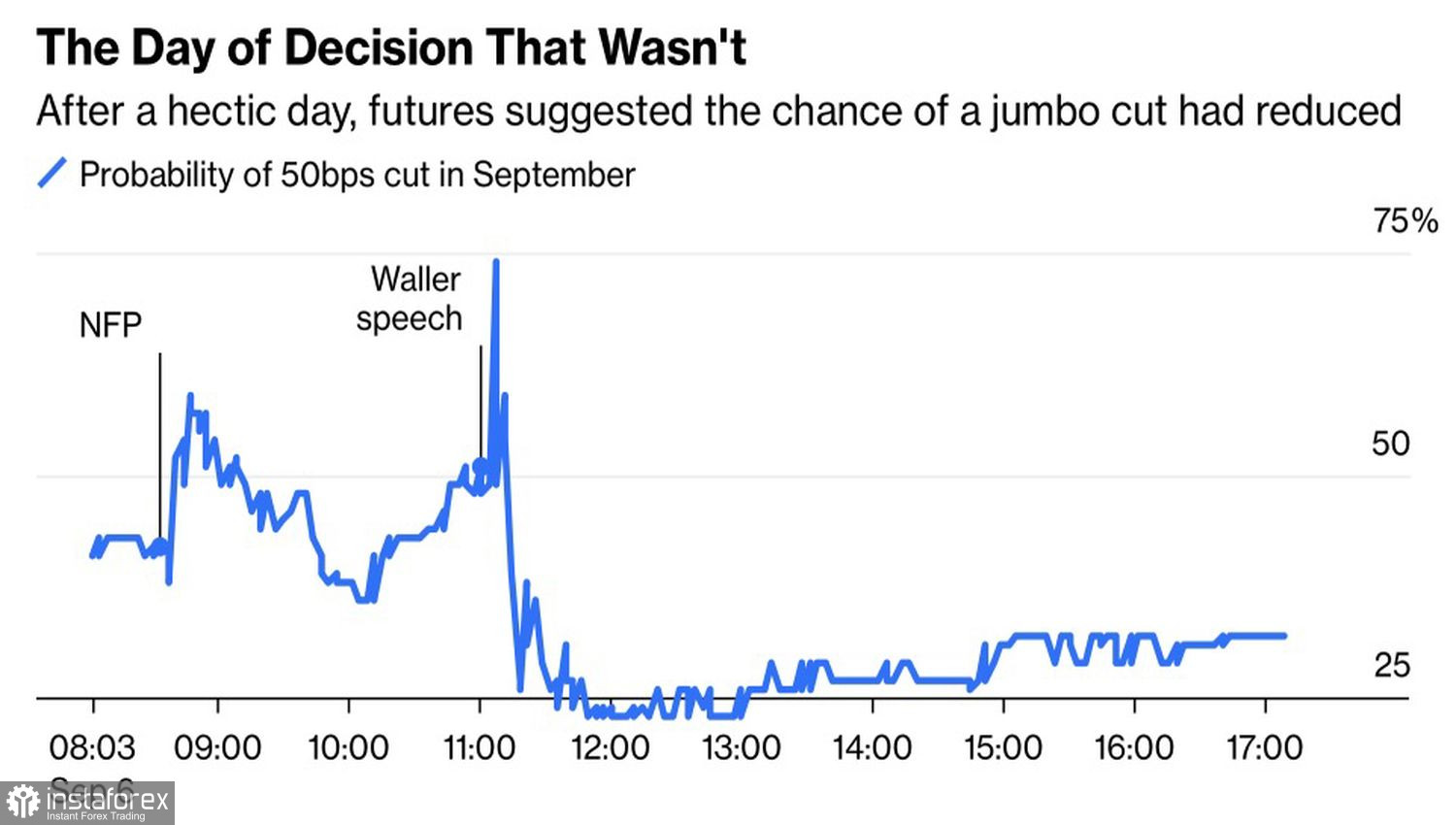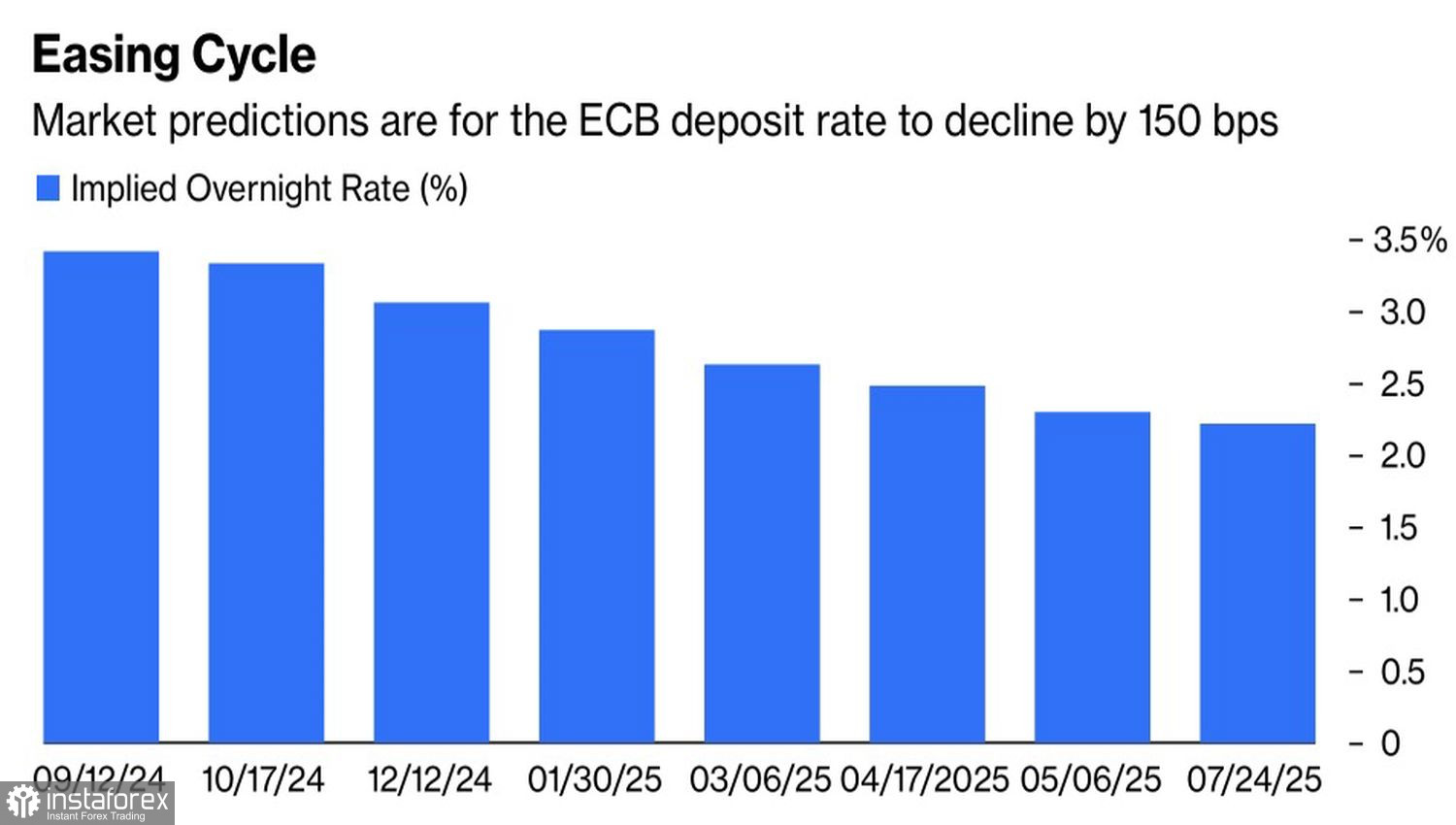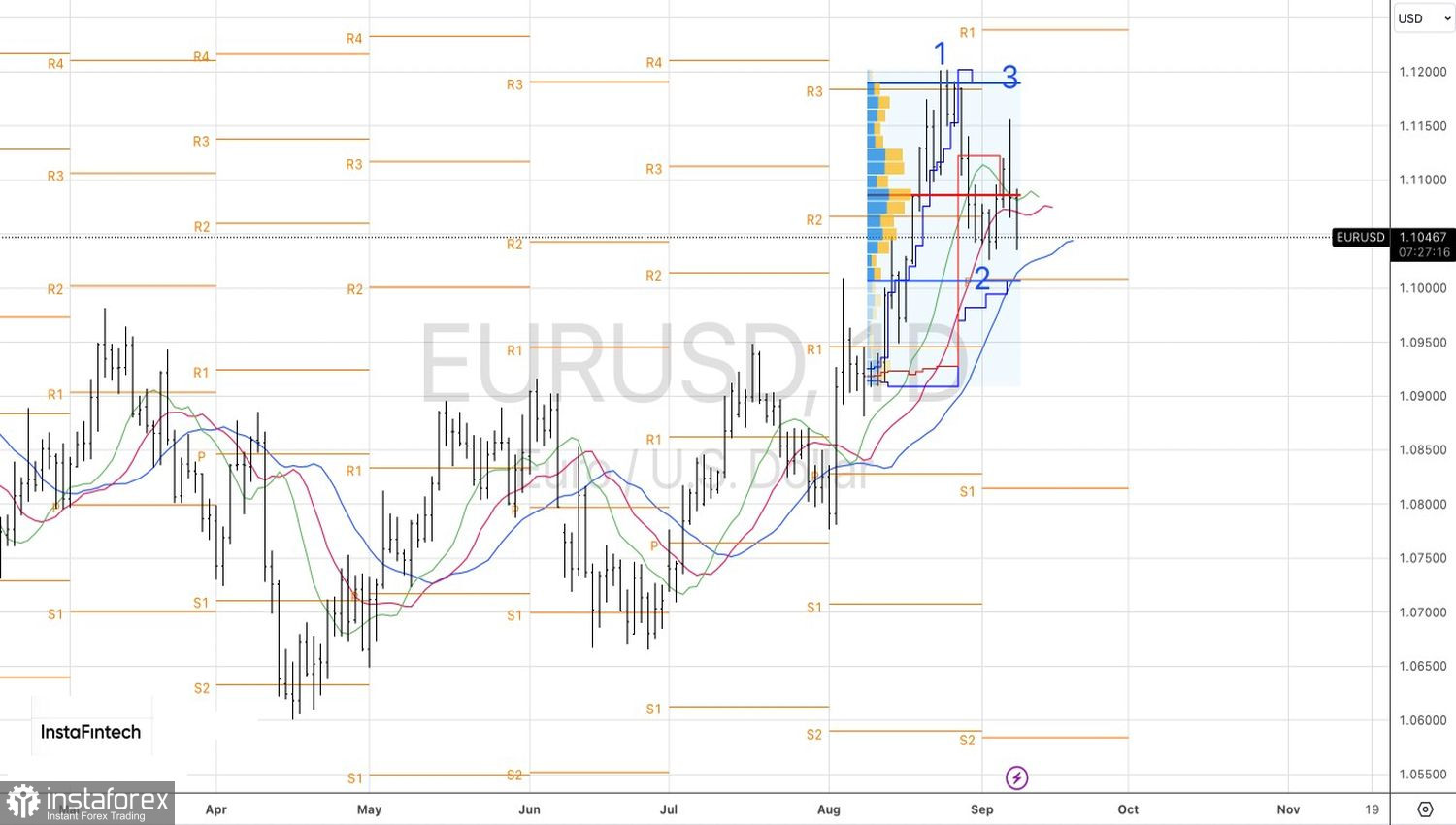Two questions continue to worry financial markets: Will there be a recession in the US economy, and how much will the Federal Reserve lower the federal funds rate at the September meeting—by 25 or 50 basis points? The fate of various assets, including EUR/USD, depends on the correct answers. Unfortunately, the US employment data for August did not provide a clue. Despite the slowdown to 142,000, investors considered the labor market healthy and returned to buying the dollar.
The tension among market players can be gauged by changes in the probability of the Fed sharply cutting borrowing costs by 50 bps at the upcoming FOMC meeting. Initially, the odds soared to more than 50%, then dropped to 30%, and then came through Christopher Waller.
Dynamics of the Probability of a Half-Point Fed Rate Cut in September

A senior official said he is ready to support aggressive monetary easing by the Fed if the data demands it. However, he also noted that the labor market appears to be cooling, not freezing. This circumstance will influence the Fed's decision in September. Investors realized they were getting ahead of themselves and lowered the probability of a half-point federal funds rate cut from 75% to 25%. The bears on EUR/USD came to life and went on the counterattack.
Now, traders are waiting for clues from the presidential debates on September 10 and the European Central Bank meeting on September 12. It is unlikely that their outlook will change due to US inflation for August. If the Fed has shifted its focus from inflation to employment, why shouldn't the market do the same?
The ECB faces a decision that is simple yet complex. The slower GDP growth in the Eurozone in the second quarter, the slowdown of German inflation below 2%, and the Fed's readiness to start a cycle of monetary policy easing seem to give ECB President Christine Lagarde and her colleagues the green light. Investors are confident in a deposit rate cut in September, but what happens next is shrouded in fog.
Borrowing costs could fall from the current 3.75% to 2.00%, that is, by 175 bps, in a year. Derivatives expect a sharper cut from the Fed by 225 bps, suggesting that Washington will move faster than Frankfurt. This is the main argument in favor of buying EUR/USD.
Dynamics of Market Expectations for the ECB Rate


In reality, central banks do not know the answers to how exactly the economy will develop, nor are they sure what the level of the neutral rate should be in order not to limit or stimulate GDP growth. If so, they will undoubtedly move cautiously. Once investors realize this, reassessing the fate of the federal funds rate will play into the hands of the US dollar.
Technically, on the daily chart, EUR/USD is executing a 1-2-3 reversal pattern. To activate it, quotes must fall below the corrective low at 1.1025. Successfully breaching this level will allow the accumulation of short positions formed from the 1.110–1.112 area.
 English
English 
 Русский
Русский Bahasa Indonesia
Bahasa Indonesia Bahasa Malay
Bahasa Malay ไทย
ไทย Español
Español Deutsch
Deutsch Български
Български Français
Français Tiếng Việt
Tiếng Việt 中文
中文 বাংলা
বাংলা हिन्दी
हिन्दी Čeština
Čeština Українська
Українська Română
Română

